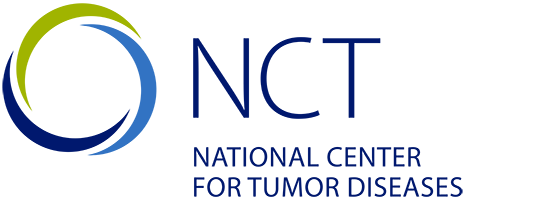Four new locations of the National Center for Tumor Diseases
As part of the National Decade Against Cancer, four new sites of the National Center for Tumor Diseases (NCT) are to be established throughout Germany. The Federal Ministry of Education and Research (BMBF) plans to provide up to 13 million euros per year per center for the final expansion of the centers in Berlin, Cologne/Essen, Tübingen/Stuttgart-Ulm and Würzburg with the partners Erlangen, Regensburg and Augsburg. The decision as to where the new NCTs are to be established was announced by the BMBF on September 23 as the result of a competitive application process. The Ministry followed the recommendation of an international panel of experts. Like the existing NCTs in Heidelberg and Dresden, the new NCT sites will combine cutting-edge patient-oriented research and oncological patient care under one roof and offer customized diagnostics and therapy at the cutting edge of research within the framework of innovative translational and clinical trials.
"We are extremely grateful to the Federal Ministry of Education and Research for the generous investment in the new sites and warmly welcome them to the NCT family. The expansion of the NCT network is an important milestone in the National Decade Against Cancer. This expansion will make it possible to bring significantly more promising results from cancer research quickly and safely into clinical application," says Michael Baumann, Chairman of the Board of the German Cancer Research Center (DKFZ). The two NCT sites in Heidelberg and Dresden already combine top-class translational cancer research with patient care at the highest level. With the new NCT sites, significantly more patients in Germany could benefit from this in the future, said Baumann.
"We are very much looking forward to shaping the new NCT sites together with the clinical partners from the very beginning," added Ursula Weyrich, Commercial Director of the DKFZ. "Now it is important to set up the necessary structures and processes as quickly and efficiently as possible and to integrate them into the existing NCT network."
University hospitals and partners throughout Germany were able to apply for the four new NCT sites until the end of February this year as part of a process led by the BMBF. An international panel of experts has now made the selection. The expansion is intended to create a network that will extend throughout Germany, enabling highly competitive international translational cancer research and providing corresponding research platforms. The aim is to translate promising results from cancer research into clinical application more quickly and to improve the care of cancer patients throughout Germany.
The National Decade Against Cancer is a joint initiative of the Federal Ministry of Education and Research, the Federal Ministry of Health and other partners. Since its launch in January 2019, the National Decade Against Cancer has brought together all relevant stakeholders from politics, research, healthcare, business and society in a Germany-wide alliance for the first time. The partners are working together to strengthen cancer research in the areas of prevention, early detection, diagnostics and innovative therapies and to further improve oncological care.
To date, two NCTs in Germany, in Heidelberg and Dresden, unite oncological patient care and patient-related research under one roof. The German Cancer Research Center (DKFZ) and Heidelberg University Hospital (UKHD) have been pooling their strengths at the NCT Heidelberg for the benefit of patients since 2004. Doctors and scientists from many disciplines work side by side to quickly translate scientific findings into clinical applications.
A few days ago, on September 21, the building for the NCT in Dresden was inaugurated after around three years of construction. The NCT partner site in Dresden has been under construction alongside Heidelberg since 2015. In addition to the DKFZ, the University Hospital Carl Gustav Carus, the Faculty of Medicine at TU Dresden and the Helmholtz-Zentrum Dresden-Rossendorf (HZDR) are the sponsors. In both Heidelberg and Dresden, doctors and scientists pursue the goal of offering each patient an individualized cancer therapy that is tailored to the patient and reflects the latest state of knowledge. Both sites work closely together and complement each other's expertise.
Contact for the press:
Dr. Sibylle Kohlstädt
German Cancer Research Center (DKFZ)
Strategic Communications and Public Relations Im Neuenheimer Feld 280
69120 Heidelberg
Phone: +49 6221 42-2843
Fax: +49 6221 42-2968
E-mail: s.kohlstaedt-at-dkfz.de
www.dkfz.de
German Cancer Research Center (DKFZ)
With more than 3,000 employees, the German Cancer Research Center (DKFZ) is the largest biomedical research institution in Germany. Over 1,300 scientists at the DKFZ research how cancer develops, identify cancer risk factors and search for new strategies to prevent people from developing cancer. They develop new methods with which tumors can be diagnosed more precisely and cancer patients can be treated more successfully. The DKFZ Cancer Information Service (KID) provides patients, interested members of the public and experts with individual answers to all questions relating to cancer. Together with partners from the university hospitals, the DKFZ operates the National Center for Tumor Diseases (NCT) in Heidelberg and Dresden, as well as the Hopp Children's Tumor Center KiTZ in Heidelberg. In the German Consortium for Translational Cancer Research (DKTK), one of the six German Centers for Health Research, the DKFZ maintains translational centers at seven university partner sites. The combination of excellent university medicine with the top-class research of a Helmholtz Center at the NCT and DKTK sites is an important contribution to transferring promising approaches from cancer research to the clinic and thus improving the chances of cancer patients. The DKFZ is funded 90 percent by the Federal Ministry of Education and Research and 10 percent by the state of Baden-Württemberg and is a member of the Helmholtz Association of German Research Centers.


